Scientists flash videos of brain development in fragile X
Scientists have for the first time captured a dynamic picture of brain defects in young mouse models of fragile X syndrome. The findings appeared in June in the Journal of Neuroscience.
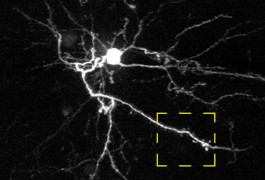
Scientists have for the first time captured a dynamic picture of brain defects in young mouse models of fragile X syndrome. The findings appeared in June in the Journal of Neuroscience.
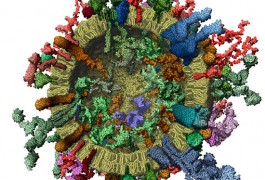
Several independent groups have found previously unknown risk genes for autism, schizophrenia and mental retardation. The candidate genes have one thing in common: they encode proteins that are needed for the healthy function of synapses, the junctions between neurons.
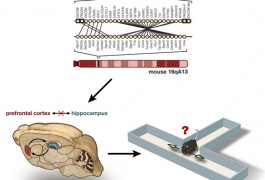
Mice engineered to carry a well-known risk factor for schizophrenia show disruptions in the connections between two brain regions that coordinate memory and learning. And these disruptions directly cause problems with working memory — the ability to actively hold information and to recall that information to make a decision, according to a study published in Nature.
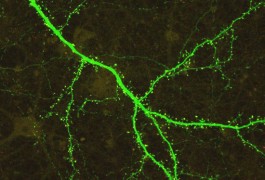
FMRP, the protein missing in fragile X syndrome, is needed for the birth of new neurons, for regulating the translation of RNA into protein, and for maintaining the structural integrity of spiny neuronal projections, according to several new studies.
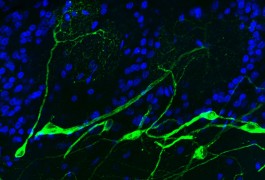
Neuroscientists have discovered a population of cells in the smell-perception area of the rat brain that express the hormone vasopressin. The study, published in Nature, begins to unpack the complicated molecular interactions of the hormone in the brain, which could lead to new autism treatments.

Attention deficit hyperactivity disorder (ADHD) and autism may have more in common than childhood onset and a few similar symptoms. New research suggests the conditions share genetic roots.
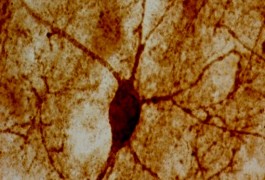
Researchers have found a higher density of several types of interneurons — nerve cells that connect sensory and motor neurons in the brain— in postmortem brain tissue from individuals with autism, compared with healthy controls. The findings appear in the February issue of Acta Neurologica Scandinavica.

Researchers are using dogs as models of psychiatric and behavioral conditions, including obsessive-compulsive disorder and autism.
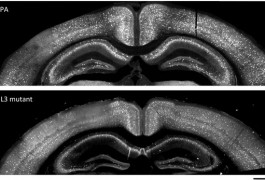
Autism may be the result of faulty wiring that occurs during early brain development, according to two independent studies that looked at the origins of circuit disruption.
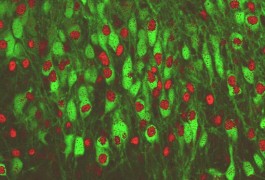
Deleting MeCP2, the gene that’s mutated in Rett syndrome, alters both the size and function of neurons in the mouse brain — at least in one brain region, the locus ceruleus — according to a 30 September report in the Journal of Neuroscience.